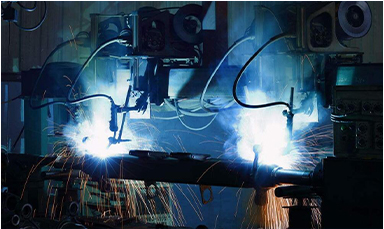Dec . 26, 2024 07:49 Back to list
Innovative Solutions for Construction with a Leading Formwork Company
The Role of Civil Formwork Companies in Construction
In the realm of modern construction, the significance of civil formwork companies cannot be understated. These specialized firms play a critical role in setting the foundation for various structures, from residential buildings to sprawling commercial complexes. Understanding the contributions, methodologies, and innovations of civil formwork companies provides insight into the efficiency and effectiveness of contemporary construction practices.
What is Civil Formwork?
Formwork, often referred to as shoring, is the temporary or permanent molds used to hold concrete in place while it sets. Civil formwork companies specialize in the design, manufacture, and installation of these structures. The purpose of formwork is to shape and support concrete until it hardens, ensuring the integrity and accuracy of the final product. This procedure is fundamental to achieving precise dimensions and structural strength.
Types of Formwork
Civil formwork comes in various forms, each suited for specific applications. The most common types of formwork include
1. Timber Formwork Traditionally, timber formwork has been widely used due to its availability and ease of handling. It is particularly advantageous for small or custom projects. However, its reusability can be limited.
2. Steel Formwork Known for its durability and reusability, steel formwork is ideal for large-scale projects. It provides excellent surface finishes and can withstand the rigors of construction.
3. Aluminum Formwork Lightweight and easy to handle, aluminum formwork is gaining popularity in residential and commercial construction. Its quick assembly and disassembly processes can lead to significant time savings on site.
4. Reusable Plastic Formwork In recent years, the industry has seen advancements in plastic technology. These forms are lightweight, easy to transport, and can be reused multiple times, making them a sustainable option.
civil formwork company

Benefits of Civil Formwork Companies
The involvement of civil formwork companies brings numerous advantages to construction projects
- Precision and Consistency With professional formwork, contractors can achieve accurate measurements and uniform shapes, essential for structural integrity.
- Time Efficiency Utilizing advanced formwork systems reduces the time required for setting and curing concrete. This efficiency can lead to faster project completion and reduced labor costs.
- Safety Established formwork companies adhere to stringent safety standards, minimizing the risks associated with concrete pouring and placement.
- Customization Experienced formwork providers can tailor their solutions to meet the unique needs of each project, offering flexibility that off-the-shelf solutions cannot.
Recent Innovations
As the construction industry evolves, so too do the methods and technologies employed by civil formwork companies. Innovations such as digital modeling, automated formwork systems, and the use of sustainable materials are becoming commonplace. Digital modeling facilitates precise designs that can be replicated on-site, while automation can enhance efficiency, reducing the labor burden on construction workers.
Moreover, with an increasing focus on sustainability, many formwork companies are exploring eco-friendly materials and practices. This trend aligns with the broader construction industry's shift towards greener and more efficient practices to help combat climate change.
Conclusion
Civil formwork companies play an integral role in the construction landscape, contributing significantly to the efficiency, safety, and quality of building projects. By understanding the types of formwork available, the benefits they offer, and the innovations shaping their future, stakeholders in the construction industry can make informed decisions that enhance project outcomes. As the demand for modern infrastructure continues to grow, the expertise and services of civil formwork companies will remain indispensable in realizing ambitious construction goals. Investing in quality formwork solutions is not merely a matter of convenience; it is a vital component of delivering durable and safe structures that stand the test of time.
-
Formwork Spring Clamp Factories: Quality & Bulk Supply
NewsAug.21,2025
-
Premium Ringlock Scaffolding | China Manufacturer & Supplier
NewsAug.19,2025
-
Efficient Table Formwork for Fast Slab Construction & Reusability
NewsAug.18,2025
-
Timber Beam H20 Formwork & Shuttering - Durable & Reliable
NewsAug.17,2025
-
Timber Beam H20: Premium Formwork & Shuttering Solutions
NewsAug.16,2025
-
Premium H20 Timber Beam for Formwork & Slab Shuttering
NewsAug.15,2025